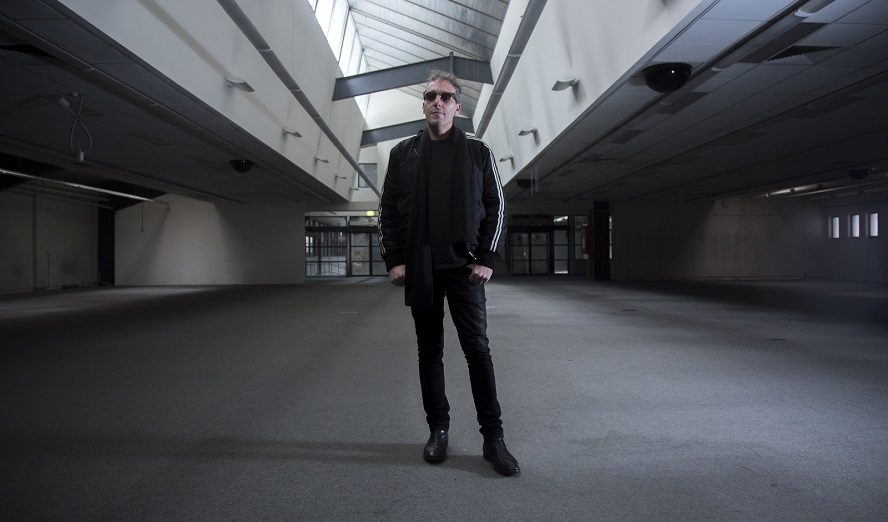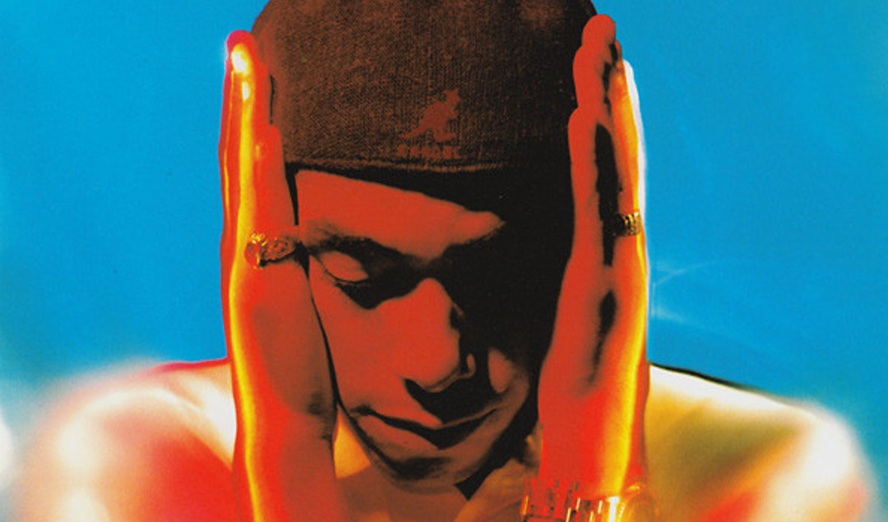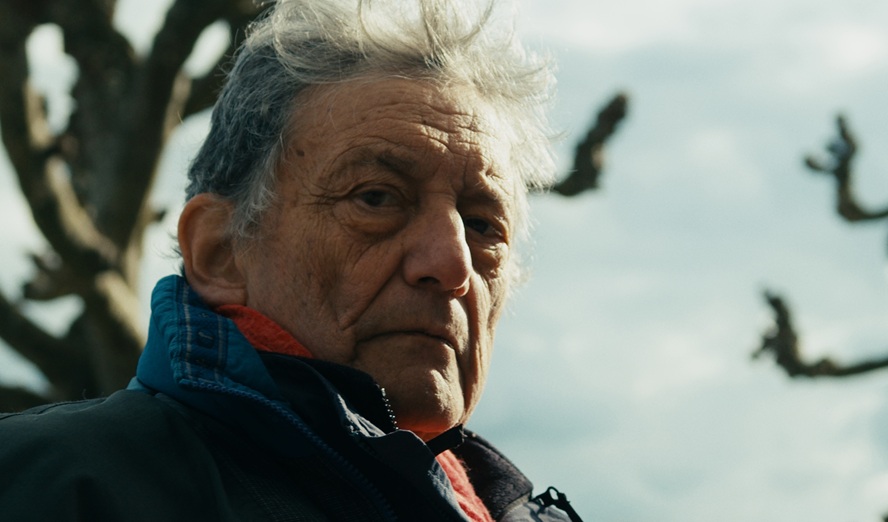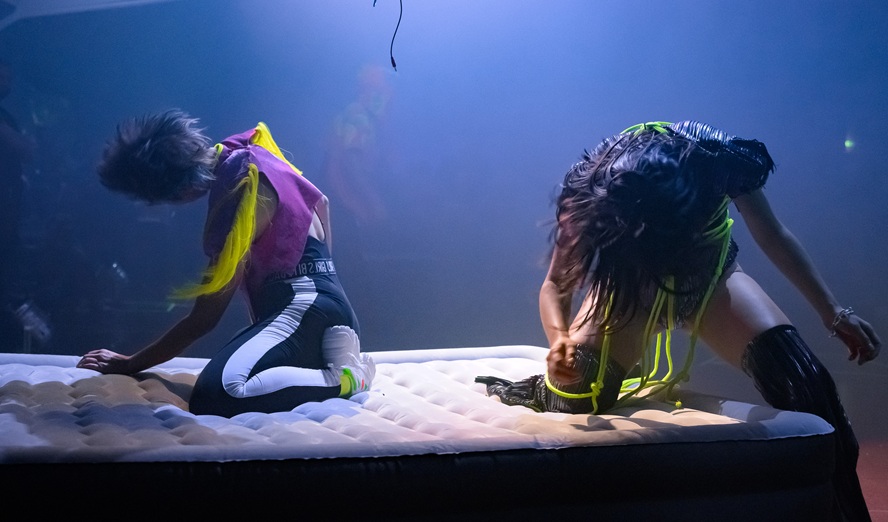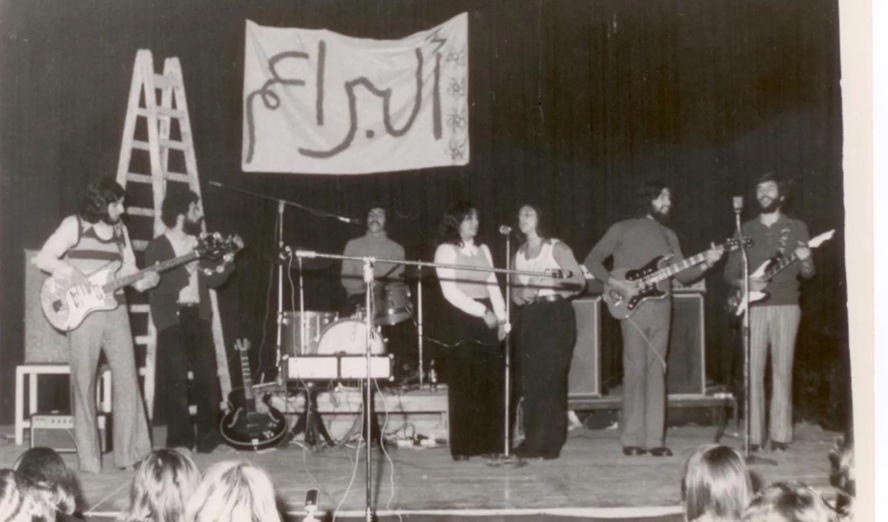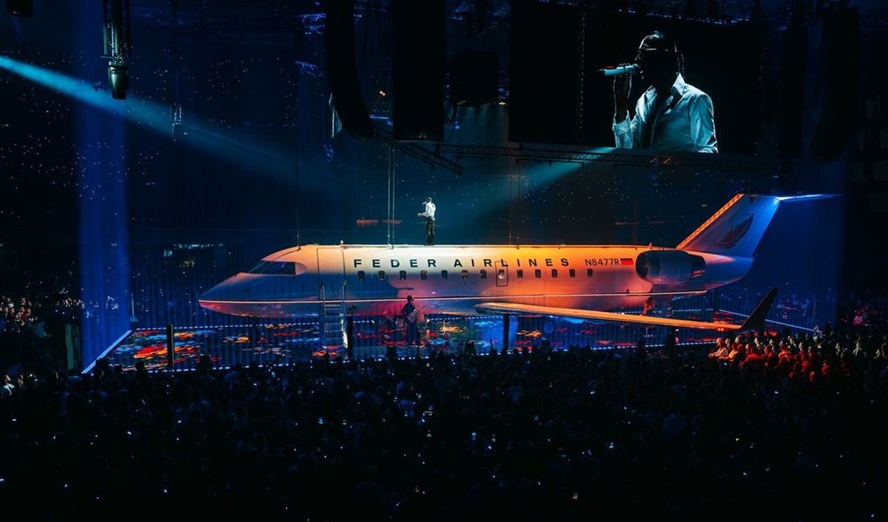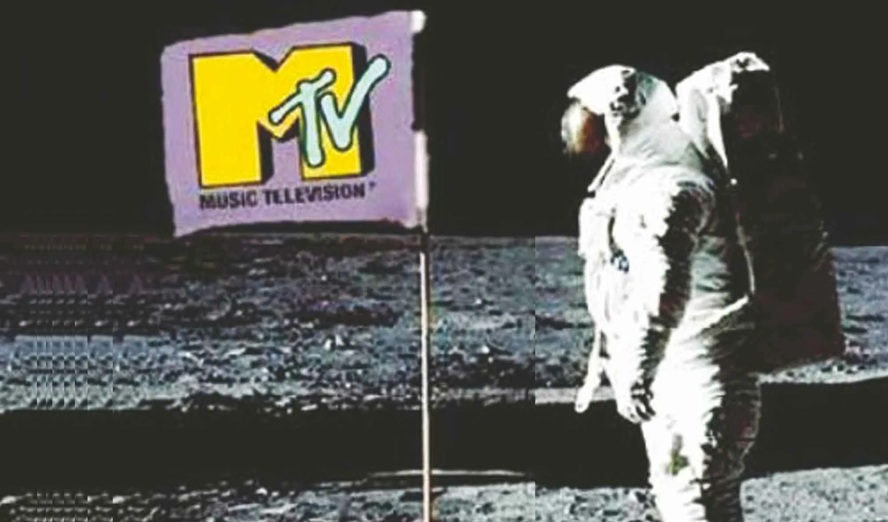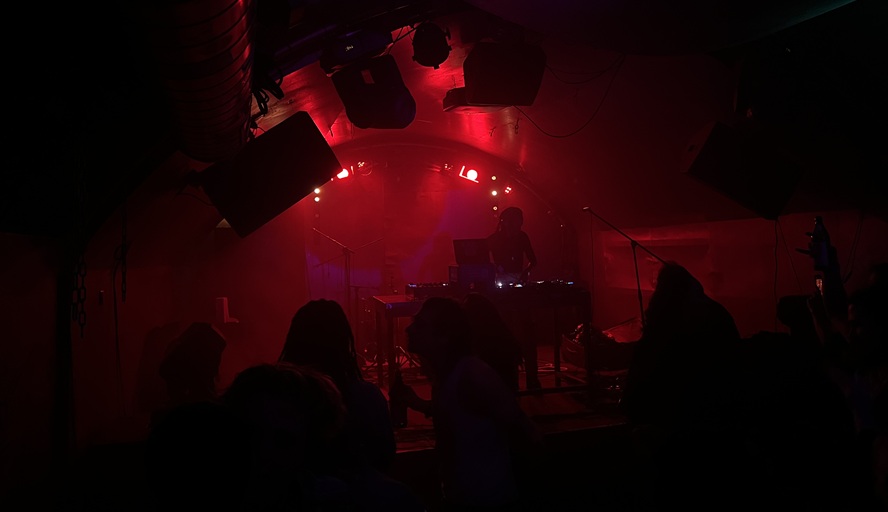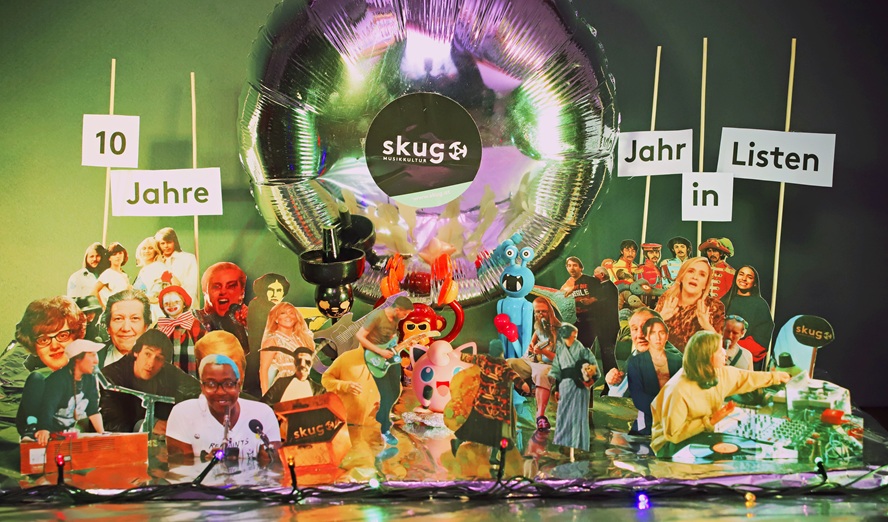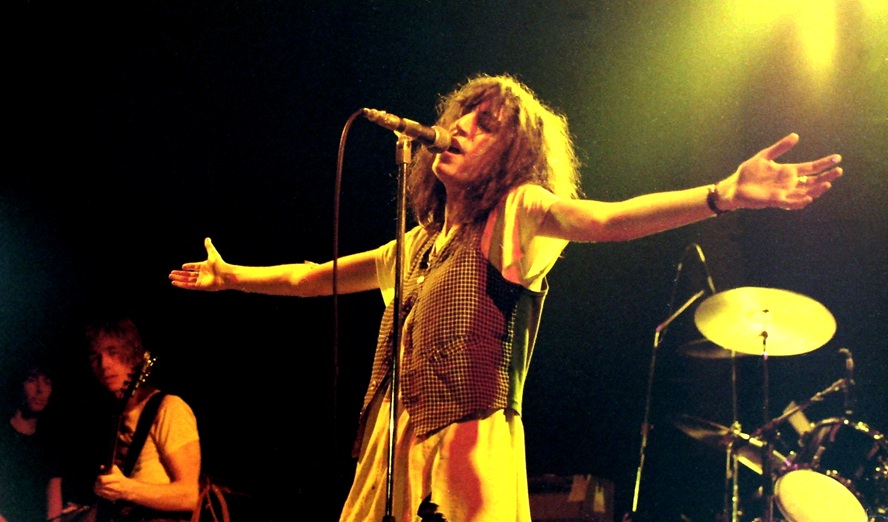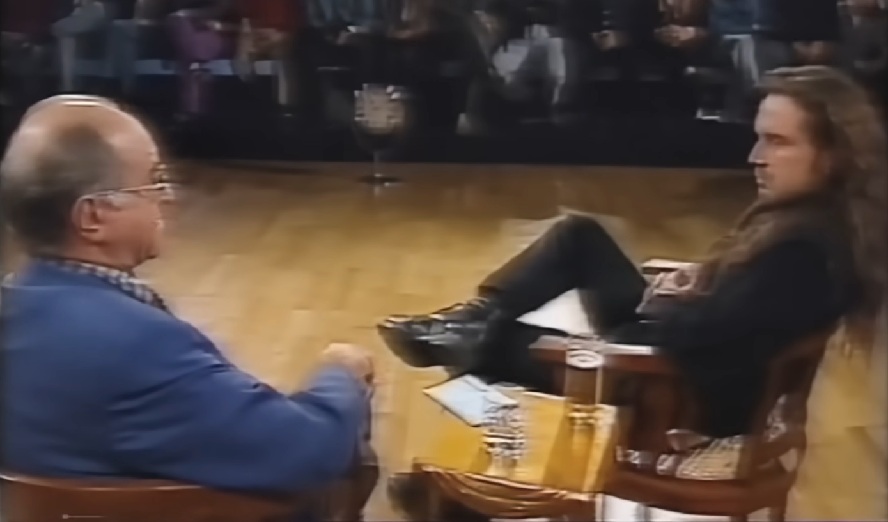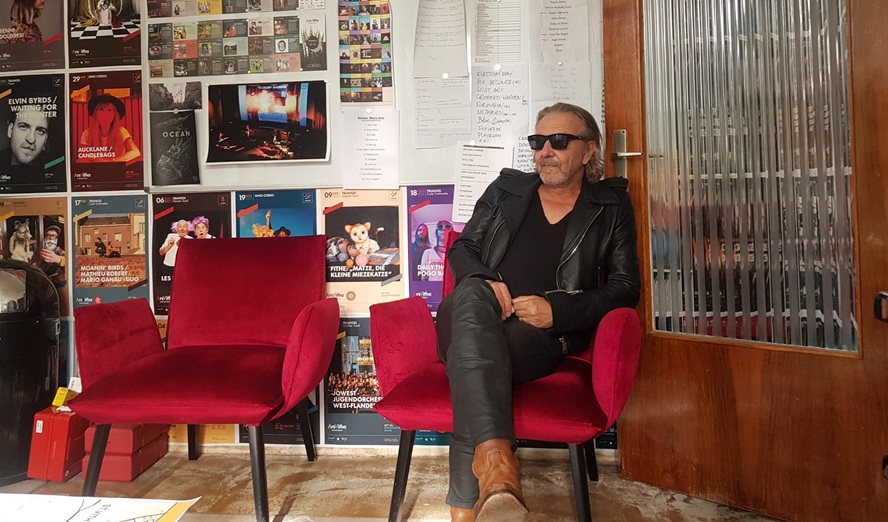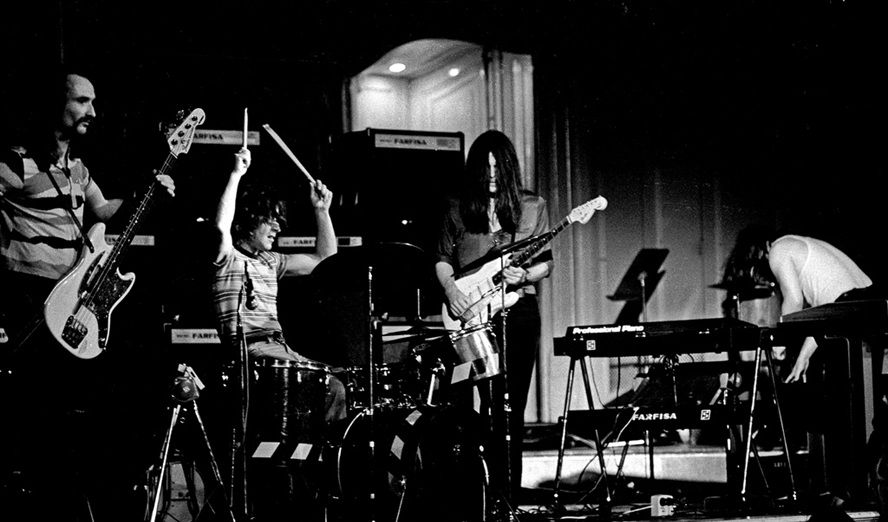The multi-instrumentalist Oren Ambarchi established most of his reputation through collaborations with luminaries like Jim O’Rourke, Keiji Haino and Stephen O’Malley. His solo work, especially the ambient-electroacoustic-bombs »Grapes From the Estate« (2004) and »In the Pendulum’s Embrace« (2007), show him from his more gentle side. Besides experimental rock, he establishes a sound which is not that unsimilar to Brian Eno’s works of ambient music. Likewise, within his new record, his love for Brazilian music finally finds its way into his work. Cyro Baptista, pope of percussion from São Paulo and long-time collaborator of John Zorn, plays several traditional instruments in a very »fitting«, very pleasant context: On the spheric, abstract guitar landscapes, it rattles off with very lovely and pulsating beats, while the berimbau plays metallic tones. Everything moves timelessly. Both sides, »Palm Sugar Candy« and »Simian Angel«, please with pretty subtle, complex, soothing music. The fusion of wooden-metallic, classical acoustic and electronic instruments works exquisitely.
skug: Most of your music seems to come out of a kind of improvisational mode. When composing music, do you follow any rules you’ve chosen in particular or is more or less free flow?
Oren Ambarchi: Lately most of my albums start off as a conceptual idea. With »Hubris« for example, I was listening to a lot of disco and 80s new wave stuff. There is usually a short moment on a record that I might find incredible, but this moment only lasts a few seconds. For example, one of the initial inspirations for »Hubris« was from a 10 second section on the instrumental b-side of Tulio De Piscopo’s »Stop Bajon« 12”. Something about the way the two palm-muted guitars were panned hard left and hard right, that sound gave me so much excitement and inspiration, but it only lasted 10 seconds. So I said to myself: Why can’t a whole album sound like those 10 seconds? That was a big push for me with Hubris (and listening to Wang Chung of course). My recent albums are usually inspired by a moment I’ve heard and then I frame a concept from that and run with it.
Interesting! Reminds me of Holger Czukay’s concept of pop music. He said, that the magic of pop music is to find a moment that is worth repeating on and on.
That makes sense to me. I love exploring one idea and letting it expand and unfold over a long duration.
I read an interview with Fred Frith, who, as you may know, works as a teacher for improvisation. His brother is a neurobiologist. He said that you don’t need the front part of your brain if you improvise, you have to trust in what is happening and your reactions. So, is it also partially pure laziness to just play like that? 😉
When I improvise, I am hyper-aware of what’s going on and at the same time in some sort of trance where things just tend to happen, like you are channeling something (when the improvisation is »working« anyway). When I play solo concerts it’s almost like I’m meditating as I am completely concentrating and focused, yet also somewhere else entirely.
You were a Yeshiva student for a long time with a specifically planned daily routine. Did this kind of nerdy studying of Tanakh texts somehow influence the way you work with music today?
Maybe in a way where I can be disciplined when I’m working on something, and the need for analysis, questioning myself and seeing the idea to fruition.

Beside your work as an executive musician, you publish re-issues of rare and important gems on your own label Black Truffle Records. How would you describe what you do? Is it like archaeology in the field of forgotten music?
I love records and it’s exciting to release stuff I’m excited about, hopefully introducing people to releases they might not know about. I love being turned on to music and I love turning people on to it too. One of my favourite things is having people over and playing them records, running a label is almost an extension of that.
Some artists tend to release single songs online instead of »full« albums physically. What’s the advantage or benefit of releasing albums on vinyl for you?
I started buying vinyl obsessively from a young age and it’s one of life’s greatest pleasures; nothing beats it for me. I love the ritual of putting on an LP, listening to a full-side of vinyl whilst looking at the cover, reading the credits etc. etc. As a recording artist, a side of vinyl is like a big canvass for me: the duration of an LP makes perfect sense to me. The listener can delve into it and explore it over time again and again. This has so much more meaning and depth to me than a bunch of files on a hard drive.
You’ve released so much music from different genres like punk, free jazz, noise, ambient and so on. Did you need to work on a more relaxed album after releasing such heavy noise music?
To me it’s all the same, I’m not really thinking about what the genre is, I’m just trying to explore new areas with each release and push myself.
Do you ever get frustrated while working?
Making a record can be super torturous for me and it totally takes over my life. It’s like solving a difficult jigsaw puzzle and it’s hard for me to relax until the puzzle is solved. I am completely overtaken and occupied with the work until it’s complete. So it can be frustrating at times, but when things come together and things become surprising for me, as in »wow, how is this happening?«, that is the most addictive feeling and makes it all worthwhile.
What do you do to get inspired besides exploring new music?
Plenty of things, especially film, food and travelling.
You recently released a DJ Mix – »Black Truffle at 10« – with music by f.e. Eiko Ishibashi, David Rosenboom and the great Annea Lockwood. What do they all have in common other than being released on your label?
They all make unique, highly personal music that has their »stamp« on it. Plus, they are all radical, lovely human beings.
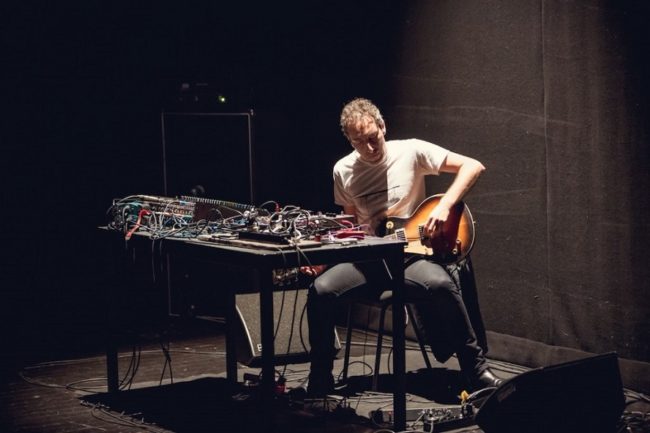
Is there any artist you would’ve liked to work with who you want to tell us about?
I would love to work with David Behrman. His music is so gorgeous and he’s such a wonderful person and a huge, huge inspiration. I’m currently working with him on some archival material for Black Truffle which is exciting. We were supposed to play in London in a trio with cello player Anthea Caddy but unfortunately it didn’t work out with the dates. Hopefully someday soon, I think it would be an interesting combination.
Looking forward to it! Together with Stephen O’Malley, you wrote music for the film »Kairos Compendium on the Future of Time«. Would you like to write more music for film, even mainstream movies?
Hell yes, although I’m sure that working in the mainstream movie »system« would be very challenging with plenty of bullshit you’d have to deal with and that’s not my cup of tea.
On your new solo-album you have worked with the percussionist Cryo Baptista. How was it working with him? Did you have any vote concerning what he did?
Cyro is incredible! It was super fun to work with him on the album. I was really going for a Nana Vasconcelos vibe with the percussion, and Cyro is a direct connection to Nana. I was quite specific with what I wanted him to play but with people as creative as Cyro, all you need to do is give them a little direction and then just let them do their thing. Otherwise why would you ask them to contribute?
How is your connection to Brazilian music in general? How did it influence you? What are your favourite artists?
Oh man, I’ve always loved Brazilian music. It has such a rich fabric and it also can be very odd, which I love of course. There are so many artists I love: some of them are Caetano Veloso, Jorge Ben, João Gilberto, Beto Guedes, Lô Borges, Walter Franco, Cassiano, Tom Zé, Milton Nascimento, Naná Vasconcelos, Egberto Gismonti, Persona, Alceu Valença, Edu Lobo, Marcos Valle, Hermeto Pascoal etc. etc.
Haha, so many of them. But it is a melting pot: On the one hand there is the huge group of the so called Black Atlantics, descendants of the slaves, then the indigenous and the white people who radicalized before and during the military dictatorship from the 60s on. And then there is Rogerio Duprat, influenced by Stockhausen and Boulez, connecting »serious music« with Pop, what then became MPB. Extremely sad and tender (João Gilberto) and then life-affirming and psychedelic (Os Mutantes) at the same time. Do you know of any other place with such a fascinating, unique music history?
There are plenty of interesting places with periods of history that are quite unique. Japan in the 60s/70s/80s is a big one for me of course, absolutely huge and unique in many genres. The period in Germany in the late 60s and 70s is quite phenomenal too. I do love periods where musical genres were more undefined and not »fixed« as artists were discovering new territory. Those periods are super exciting to me, where genres and aesthetics are mixed up and things become blurry. The best art for me is the kind that is hard to define or pin down. Whenever I say to myself, “what’s going on here??”, it’s usually something that I want to investigate.

